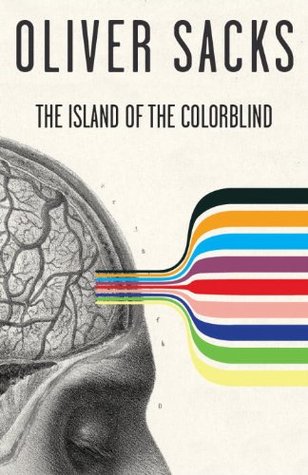More on this book
Kindle Notes & Highlights
another compound found in cycad seeds was isolated—an amino acid, beta-N-methylamino-levoalanine (BMAA),
very similar in structure to the neurotoxic amino acid beta-N-oxalylamino-levoalanine (BOAA), which was known to caus...
This highlight has been truncated due to consecutive passage length restrictions.
fugu, puffer fish,
“You have a one in two hundred chance of being poisoned—the chefs are highly trained, but sometimes they make a mistake, leave a trace of skin or viscera on the fish.
Tetrodotoxin—a ghastly way to go!”
Ciguatoxin is a powerful neurotoxin produced by a tiny organism, a dinoflagellate called Gambierdiscus toxicus, which lives among the algae that grow in channels on the coral reefs. Herbivorous fish feed on the algae, and carnivorous fish in turn feed on them, so the toxin accumulates in large, predatory fish like snapper, grouper, surgeonfish, and jack (all of which I saw on the menu). The ciguatoxin causes no illness in fish—they seem to thrive on it—but it is very dangerous to mammals, and to man.
There is no way a fisherman can tell whether a particular fish is toxic, and no way of preparing or cooking it that will deactivate the toxin.
horripilation
power outages,” I said. “Sure,” said John, “we have them all the time, Oliver. They’re caused by the snakes.”
We have millions of these brown, tree-climbing snakes everywhere—the whole island is overrun by them. They climb the telephone poles, get into the substations, through the ducts, into the transformers, and then, pfft! We have another outage. The blackouts can happen two or three times a day, and so everyone is prepared for them—we call them snakeouts.
“There is no birdsong on Guam—the island is silent,” John said. “We used to have many birds, but all of them are gone—there is not a single one left. All of them have been eaten by the tree-climbing snakes.”
The tree-climbing snake had made its way to Guam in the hold of a navy ship toward the end of the Second World War and, finding little competition among the native fauna, had rapidly multiplied.
fronds
aged Ibsen after his stroke, aphasic, partly paralyzed, no longer able to go out or write or talk—but insistent, always, that he be allowed to stand by the tall windows in his room, looking out on the harbor, the streets, the vivid spectacle of the city.
He could respond quite readily, but could not initiate a sentence. Nor, it seemed, a movement either—he might sit totally motionless for hours, unless something or someone called him to move.
he would have to be picked up and lifted (“like a corpse,” he said) into the car; but once there, and seated at a card table, he could play a fast and hard game of gin rummy. He could not start the play—someone else had to do this—but once the first card was slapped down, he would suddenly come to life, respond, pick up another card, and continue the game.
They know well how to unfreeze or unlock patients if they get frozen, by initiating speech or action for them—
how the mute and motionless parkinsonian can respond beautifully to music, singing and dancing, when speech and motion had previously seemed impossible.
bauxite,
neurolathyrism
chickling pea;
BOAA heightened sensitivity to glutamate,
BOAA intoxication, therefore, could push the glutamate receptor cells into a sort of overdrive, until they literally died of overexcitation and exhaustion.
BMAA might have two distinct effects: given in high doses, it caused an ALS-like condition to develop rapidly; but smaller doses seemed to cause, after a considerably longer period, a parkinsonian condition—a double action reminiscent of the Guam disease.
revivified.
cycasin (or its component, MAM, or methazoxymethanol)
vexed,
“Come again soon,” he said, cheerfully. “I won’t remember you, so I’ll have the pleasure of meeting you all over again.”
sexton
litany—
legerdemain
diorama.
banyans
hubris.
prostrate
“those winds got to two hundred miles per hour, they say.”
“The typhoon strips all the leaves off the plant,”
epiphyte
Psilotum,
is one of the most exciting plants in the world, for its ancestors, the psilophytes of the Silurian, were the first plants to develop a vascular system, to free themselves from the need to live in water.
dioramas
the cones may generate heat—sometimes twenty degrees or more above the ambient temperature—as they ready for pollination.
barmy
“coeval
At night your eyes and mine are “disabled” in perceiving stars as our eyes automatically focus the point of concentration onto our fovea (which we know is cone-rich), and cones do not function at night.
an end-point characterized not only by desperate overcrowding and disease but by loss of cultural identity and coherence, and its replacement by an alien and frenzied consumerism, a cash economy.
Cook, visiting Tahiti in 1769, only two years after its “discovery,” could not help wondering, in his journals, whether the arrival of the white man might spell doom for all the Pacific cultures:
Many islanders live with their pigs as we do with our dogs; both crowd around the hearth with equal freedom; and the island pig is a fellow of activity, enterprise, and sense. He husks his own cocoa-nuts, and (I am told) rolls them into the sun to burst.…
vexation
incredulity


